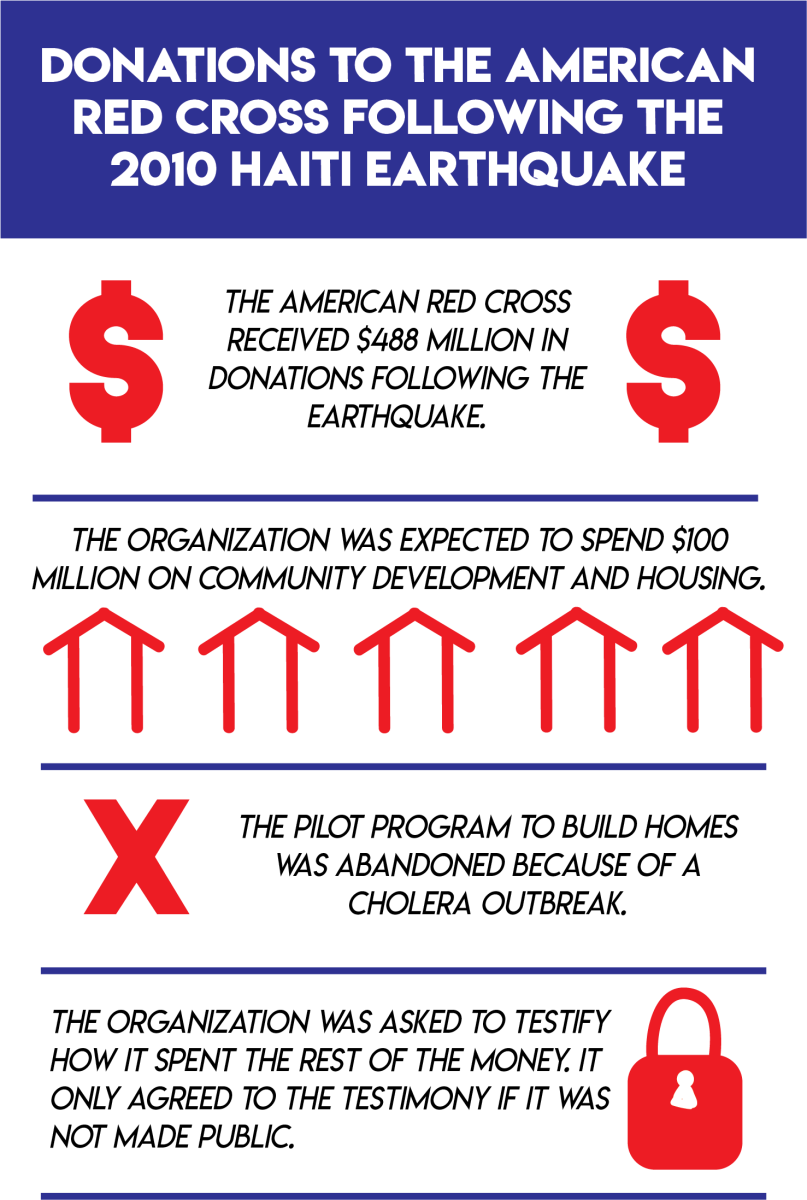_Abigail Ruhman is a freshman journalism major at MU. She is an opinion columnist who writes about student life, politics and social issues for The Maneater._
The premise of charities is remarkable. All a charity had to do to be successful was to get people to donate time or money so they could cultivate change. It makes sense, until you remember that humanity has a way of complicating the simplest of ideas. It’s to the point where society needs to reevaluate how and why people give to charities in general.
As much as society likes to believe that giving to charity is never a bad thing, there are aspects of it that people should be more conscious of. The reasons range from why people donate to what charities choose to do with that money or volunteer hours. The mentality of charities doing no wrong has led to cycle of selfishness and wasted resources.
This doesn’t mean that giving to charity automatically makes you selfish. In order to selflessly give, you have to recognize your responsibility and motivation in the equation. While many organizations are actively trying to do good things, donors need to make sure that the charity they are giving to is legitimate and helpful to the community they support.
After the 2010 earthquake in Haiti, the American Red Cross received around $488 million in donations. They said they expected to spend $100 million on community development and permanent housing, [according to Reader’s Digest.](https://www.rd.com/culture/how-charities-spend-money/) With this money, the American Red Cross built six new homes. Their explanation of this was weak and failed to appease their donors. The homes were a “pilot” program that was abandoned because of a cholera outbreak, the nation’s land-title system, corruption and security issues, according to [Reader’s Digest](https://www.rd.com/culture/how-charities-spend-money/).
Donors wanted to know where all their money went, but the American Red Cross was not fond of that idea. It released its spending in very broad categories, according to [Reader’s Digest](https://www.rd.com/culture/how-charities-spend-money/). The Red Cross [report](https://www.redcross.org/content/dam/redcross/uncategorized/11/RedCross-Projects-Partnerships-Haiti.pdf) shows how they spent the money they were given. However, even with the more specific separations, there are still some problems with where the money went.
The organization [spent $125 million on internal expenses](https://www.npr.org/2016/06/16/482020436/senators-report-finds-fundamental-concerns-about-red-cross-finances), which is more than the charity originally disclosed, according to NPR. A report by Iowa Sen. Chuck Grassley, discussed by NPR, explained that Red Cross didn’t provide the full information behind the Haiti spending. When Grassley requested the Red Cross to testify, about how it spent nearly half a billion dollars, it agreed — but only if its testimony wasn’t made public.
In addition, the Grassley’s report said that Red Cross officials blocked congressional investigators and didn’t release the all of the information about the Haiti program to the public. The Red Cross may have released a more specific report, but the issue is that Red Cross still had issues providing any financial evidence that the oversight activities they claimed were occuring, according to NPR.
Charities like this aren’t just wasting donor money, they are also wasting donors’ time. While volunteers ring bells for the Salvation Army, they may not know what they are spending their time supporting. The church and charity combo is the top five biggest charities, according to Forbes, but has received criticism for the anti-LGBTQ rhetoric that they promote.
The spirit of homophobia has been present within the organization since its founding, but became more recognized in the early 2000s. In 2001, the Salvation Army failed to lobby the Bush administration to exempt religious charities from local laws banning discrimination, according to Fortune. More than a decade later, the media relations director claimed that gay people deserved death, according to The Atlantic.
As much as donor responsibility is a major part of participating in philantraphy, it is also important to look at why people choose to donate their time or money. The reason that most people tend to give to charities is as a way to feel good about themselves.
Researchers found that people are more likely to give when they think it will make them feel better, according to Time. The motivation to give to charity is selfish, but this isn’t exactly a problem. The charities are still getting money, people are getting help and the donor gets to feel good.
The issue is that this creates lazy giving. Instead of researching which organization to support, people will give to whatever is easiest. Rather than giving to a local shelter that uses 99 percent of its donations to help the people it says it will, people will send money to the red bucket where it may actually hurt the LGBTQ community or go to an organization that wastes its resources.
Giving money or time to charity can make you feel great, but that shouldn’t be the only reason you donate. Being a conscious donor means that you are more invested in the cause that you support. Researching the charity you want to donate to builds a level of attachment that helps you become a donor and an active participant within that organization.














